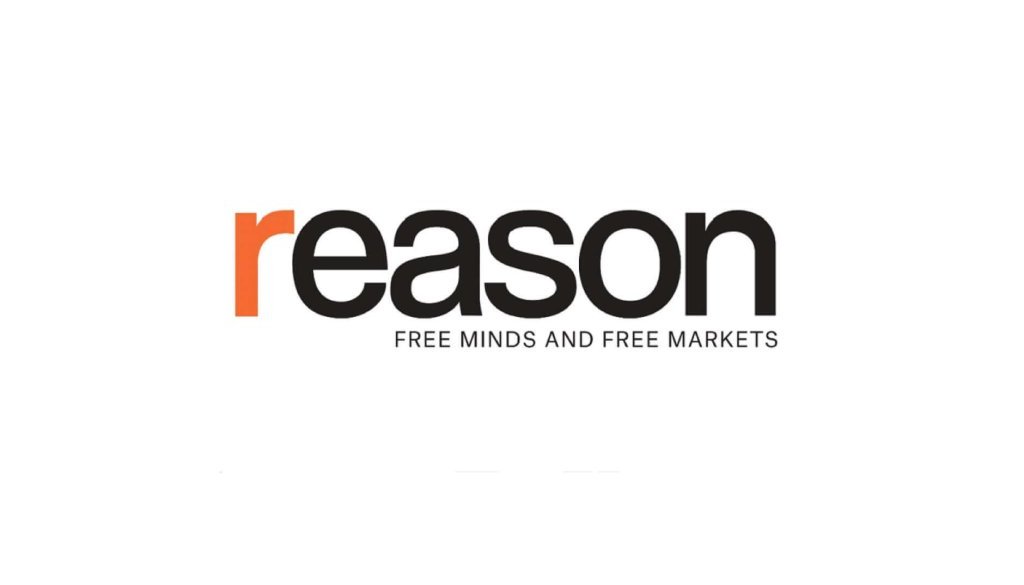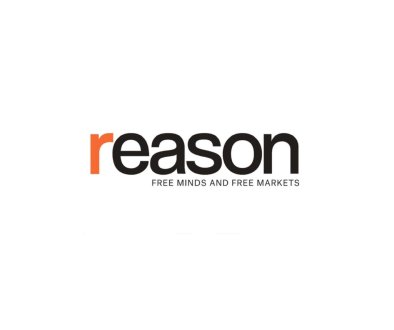Streaming Music Isn’t a Free Market. It’s a Regulated Monopoly.
Today’s guest is David Lowery, the legendary frontman of the bands Camper Van Beethoven and Cracker, digital copyright crusader, and longtime Reason reader.
He dives deep into his sprawling, deeply personal new record Fathers, Sons and Brothers and the postwar California dream, talks about how the music industry broke, and suggests ways to maybe, just maybe, fix it.
He’s sued Spotify and other streaming services, teaches business at the University of Georgia, and he’s dropped what might be the best one-liner about selling out since The Who.
If you care about music, creative freedom, and getting paid for your work, this one is for you.
0:00—Intro
0:52—Lowery’s Reason connection
2:34—Fathers, Sons and Brothers
15:25—Lowery’s musical inspirations
19:25—Camper Van Beethoven
28:31—What it was like being indie in the ’80s
35:48—Cracker and alternative rock
42:26—What does it mean to “sell out”?
48:56—Streaming music and artist compensation
58:01—Lowery’s class-action lawsuits
1:01:07—Royalty rates and copyright protections
1:07:30—Has the DTC model improved the music business?
1:15:50—Optimism for the future of music
Transcript
This is an AI-generated, AI-edited transcript. Check all quotes against the audio for accuracy.
Nick Gillespie: So, David Lowery, it is a pleasure to be talking to you. Thanks for talking to Reason.
David Lowery: Thank you, it’s a pleasure to be here.
And you have told me in a different conversation, when you were a wee student at UC Santa Cruz, you had a roommate or a dorm mate who was a Reason reader. Can you remind me about that?
Yeah, well, there was a couple of connections to that. But yeah, I had a—he wasn’t really a roommate, but he lived in the same building—was a guy that we just called Scott the Anarchist. And that was sort of where my introduction to the magazine came from. And then I later, when I was in college, I worked at a farm, which is detailed on this solo album. And the owner was just a full-blown anarcho-capitalist, I would say.
Did that mean you had to pay to leave the job every day or something like that? That could be a brutal regime.
Right. That’s my description of him. We got along actually pretty well. But considering Santa Cruz was so lefty, my calculation is that I probably found the two libertarian anarchists in the whole county, right? And they sort of were influential to me in a lot of ways.
Well, it’s always good, when you’re in any kind of monoculture, to hang out with the people who are not quite fitting in.
Absolutely, absolutely.
We’re going to talk about your experiences with Camper Van Beethoven and Cracker and the music industry more broadly, especially issues about IP as music shifted from kind of record stores and analog needles dragging through vinyl to streaming. All kinds of the interesting IP battles and the way that record labels went from being villainous for one reason and then for other reasons. We’ll talk about that in a bit.
But first, I want to talk about the new record Father’s Sons and Brothers, which is a musical memoir, a musical autobiography that you’ve released on vinyl as well as online. And you’re writing a Substack where you explain the background of each song. Can you explain what you’re trying to do with Father’s Sons and Brothers and why now?
Right. So, I started this shortly before COVID. I sort of felt like there were some people in my life that deserved their own song or a little explanation or something like that. So, that’s sort of a memoir-ish type thing. At the same time, I’d had several people urging me, like, “Now’s the time of your life when you do the autobiography.” But there’s definitely a formula to doing these sort of rock autobiographies, and I didn’t have a lot of the elements there, in my opinion.
I didn’t struggle. The first album Camper Van Beethoven puts out is played on the BBC. So, there’s a lot of tension that isn’t there.
There’s no airplane crash that wipes out half the band or anything.
That’s right. I didn’t have the parents that shipped me off to some sort of indoctrination camp because I became a punk rocker or something like that. None of those things happened to me. Everybody was supportive. I got lucky all the time. So, the shape of the written autobiography, to me, wasn’t there.
Also, too, you write all the time, that’s a very different skill than writing music. I only have to worry about five minutes. I just felt like this was going to be a whole new skill I was going to have to learn, to write an autobiography. So I thought, “Well,why don’t I just do it with— I’m already checking some boxes, writing about some people that I need to write about. I’ll just start recording CDs” essentially, and “I’ll be done when I’m done. I’m recording these songs”
So, that’s how it started.
Then, the other element of it, though, was interesting to me, because for me, it’s easier for me to write music than it is to write lyrics. I know it may not sound like that, but it’s hard to find things to sing about. I keep a little notepad file in my phone where I write down titles or an idea or something, just because I need those.
And this was easy because I’d be like, “Ok, talk about my sister now. I want to talk about my grandfather on my mom’s side when I talk about this.” It was a good plot device for me to do this. And then it matched the COVID shutdown where the music business sort of went away.
About a year into this, we had the COVID shutdown, and then it’s like, “Okay, well, this is really personal.” It’s just me sitting with my little tiny digital eight-track recorder.
The opening song recollects your first memory or something close to it. But you write—you’re in Georgia now, you’ve spent time in Virginia—but fundamentally, the musical space that you seem to occupy generally, but especially on this record, to me anyways, is California.
Can you talk a little bit about California? Like you mentioned in a song, a super bloom of a certain kind of flower or weed in the Coachella Valley. Talk a bit about that. What does California mean? Because California, in rock music, California is the backdrop for a lot of stuff. It seems like things very quickly left Philadelphia and New York—and being up on the rooftop in New York or being real hot in the city or something like that—to this California, which can mean a lot of different things. But what does California mean to you, and what does that super bloom represent to you?
Yeah. So, the super bloom was doing two things. The super bloom is the late-winter, early-spring burst of wildflowers that you will get in the desert if the conditions are right. Not every year. Sometimes it skips 10 years. And it’s this explosion of life.
So in one way, I’m talking about the explosion of life in that it’s my age—I’m like 14 years old, boys are growing, you’re sort of getting elements of being an adult, and stuff like that. It was also California at that time, which had gone through kind of a super bloom. Everybody that was around me where we lived in California—my father was in the Air Force, he got stationed in California. Was in an area called the Inland Empire, which is right next to a separate area called the Coachella Valley. It had exploded with people, mostly immigrants from other parts of the United States, specifically a lot of people from the South, from Texas, from Oklahoma.
You had this wild blossoming not just of life but of the economy and culture and things like that. Most people tend to focus on San Francisco and Hollywood, at that time, or coastal LA, but the same thing happened inland in the deserts.
My grandparents came out there, and cousins came out there basically to work in the agricultural industry, and then shifted to servicing the rich people on the golf courses and the Hollywood celebrities in Palm Springs and stuff like that. It was just a really fascinating time—a good time to be alive in California. I have a more positive spin on it than, say, Joan Didion.
The dreamers of the dream and…
I have a more positive take on it than she does.
Yeah, talk about that. Because the Grapes of Wrath, of course, ends with the Okies leaving the Dust Bowl. Then you kind of skip ahead and get to Joan Didion or, before her, James Cain and hard boiled that—or Nathaniel West. California, particularly Southern California, is kind of the asshole of the country, and all of the bad people get shaken down into there. And it’s a hard, grubby, déclassé life of endless yearning and dissatisfaction. You have a different view of that.
Well, yeah, my family came out of such poverty in Arkansas and personal tragedy as well too, which I go into on the record. My grandfather didn’t read or write. He signed his name with an X. He basically took care—he was like horses, farming, agriculture. Figured out how to service people’s pools—a little side business for him.
Swimming for a cement pond. Right.
Yeah. The cement pond. And for them, this was a wonderful life. They made decent money. They bought a house again. Eventually their children and the grandchildren heard about the wonderful life in California, and they all followed them out there. At first, they really were literally in the fields picking fruit. Picking dates was a big thing to do.
Amazing.
It’s dangerous work. And then, eventually, I don’t think nobody ever got rich—although my uncle was the marshal of Riverside County at one point.
And you had a couple of cousins who got—
Who were on the other side of the law.
Yeah, that’s right. You know, the album, though, is not some kind of super feel-good album. There’s a lot of darkness and tragedy, but also hope in it. It reminded me a lot of another California transplant—who it didn’t end up as well—Gram Parsons. But there’s a touch in this album of what he used to call “cosmic American music,” which is very rooted in Americana tradition, particularly blues and R&B and country, and what used to be called “hillbilly music”. It’s both uplifting and sad at the same time.
Does that resonate with you? It seems to me there’s a whole vein—Brian Wilson died recently—and the Beach Boys, on the one hand, they’re the happiest band on earth: they’re upbeat, they all look good, have white teeth, blue eyes, and blonde hair. And yet there’s something unbelievably sad and depressing about their music, I find. The Byrds are like this too. I don’t think this album is not depressing, but it has that mix—it’s upbeat, it’s yearning, it’s positive, but it’s also deeply kind of riven with sadness and tragedy.
Yeah, so the song that probably does that the most is “Piney Woods,” which discusses this area of Arkansas, Louisiana, and East Texas. I have a song that’s kind of a study of the area. But specifically, if you listen to the melody of that song, it is almost totally major-key, almost straight-up melody. It’s a very positive melody, but the subject matter of it—it got better and better the more I dealt with the details of the song, which is the suicide of my dad’s brother.
That was the contrast that really made that song work. It’s almost so folky, it harkens back more to the Celtic roots of the American forms. It’s almost there. It’s so folky. That’s part of it. A lot of my perspective is an Inland California perspective, which is much more—Bakersfield, obviously—but it’s much more infused with the Southern and the country rock music, whereas the Beach Boys have less of that in what they do. So that’s a bit of it as well.
Who do you count as your musical icons? Because it was also interesting listening to this record—Neil Young during COVID, who, Canadian by birth, Californian by choice, I suppose—he released a bunch of performances as well as songs during COVID that were somehow set in a psychic California. That can be both upbeat and downbeat at the same time.
And I was thinking, you’re like occupying the Riverside County—or, the Inland Empire version of Neil Young’s Northern California. Who are your musical heroes that guide you?
Well I think I’m probably pretty influenced, honestly, by the classic rock artists and stuff like that. But if you want to talk specifically about this sort of little niche I’ve moved into, I would say the biggest influence probably was Kaleidoscope. With the American, with David Lindley…
One song of theirs I know well, I believe, is “The Sky Children.”
I don’t know if I know that. There are two Kaleidoscopes. There’s a British Kaleidoscope, and there’s a Southern California…
Oh, okay, so this may be the other one. But talk about Southern California Kaleidoscope.
So California Kaleidoscope—they were also from the Inland Empire. It was David Lindley, who’s a fiddler, guitarist—he played with everybody from Jackson Browne, did television themes, all kinds of stuff. But this was his ’60s psychedelic folk band. They all played different instruments. They all play fiddle at some point on the record. I remember I started Camper Van Beethoven, and I gave a tape to Ray Farrell from SST, and he goes, “Oh, so you guys loved Kaleidoscope growing up?” And I was like, “Who?” “From your neighborhood, how do you not know them?” Right?
So in a way, that’s the big Camper Van Beethoven influence.
And then from there, I suppose, I had to retroactively discover stuff. I had to discover Bruce Springsteen in the mid-2000s. Things like that would happen to me just because, I don’t know, I had some impression of what he was about, and it was wrong.
So in a way, there’s some of Bruce Springsteen’s “Ghost of Tom Joad” in this album. In fact, to the point where I accidentally took a chord progression. But the progressions aren’t copyrightable.
Well, give it time.
Give it time, yeah. So it’s kind of all over the place. But for this record, I’d point to those two—literally Kaleidoscope and… I know Bruce Springsteen is sort of playing characters, and then telling their stories. In this, I’m not playing a character, but sort of his randomness where he’ll talk about really specific things—like a woman’s shoe, he ties her shoe, as he fits her for a shoe. Really small details that makes the song come to life. So I’ve got to say, there’s some of that in there as well too. I could go on and on listing…
Let’s talk about Camper Van Beethoven, because they were a band—I wrote for the American version of Smash Hits, which was, if you ever wanted to confess to a murder, that was the magazine to do it in because nobody read it. But I remember coming across Our Beloved Revolutionary Sweetheart. I reviewed it. I gave it a thumbs-up—or we might have used two fingers up or three fingers up because we were cheeky and different.
But Camper Van Beethoven was one of the archetypal indie rock bands of the ’80s, when that mattered. And there’s an irony that is infused in that music that is—you know, I don’t know how to describe it. Can you talk about where that came from?
And one of the songs on Father, Sons, and Brothers, you reference “Take the Skinheads Bowling,” which became this mass hit. That was life-changing for you because that made the band popular in a way that meant you were going forward in the music industry. Can you talk about where the ironic sensibility of Camper Van Beethoven came from, and then how “Take the Skinheads Bowling” being popular changed the direction of your life?
Yeah, so Camper Van Beethoven was a reaction to the seriousness of hardcore punk rock—which hadn’t started that way, by the way. Hardcore West Coast punk rock and post-punk British stuff—everything was heavy. And there’s a little bit of the punk rock spirit that always forces you to talk about whatever the status quo is.
In our case, our status quo had become punk rock and the post-punk rock scene that we all grew up in. I remember our demo tape at some point got reviewed by the punk fanzine Maximum Rocknroll—
Oh wow, yeah.
—where they just said, “Hey, these guys don’t sound punk, but they’re absolutely the spirit of punk,” in a way. So that encouraged us.
It was us being ironic or tongue-in-cheek while still trying to be serious—maybe the way that Kurt Vonnegut writes. There’s some humor, or non-seriousness, in his serious writing. That’s also a very postmodern sort of thing. We’re of second order. There’s a second-order meaning in the songs.
We really don’t want to play lacrosse in the song “Club Med Sucks”. It’s tongue-in-cheek is what we’re saying. That just worked for us immediately, and we felt like, “well, we could be a serious band.” The Beatles did that sometimes. Kinks did that a lot. So it just didn’t frighten us away.
Why do you think punk got so serious? Because when it started—and it’s useless to get into strict definitions of punk, etc. It started as a burst of energy and a reaction to prog rock or over-serious mega productions done by hippies, let’s say. And it was fun and exciting. And it was short. Then it itself became really serious, especially the Southern California punk scene. It seemed to, you know—like with Ronnie Reagan and everything was serious and political. Why did that happen?
I’m not really sure. But I mean, there is a tendency, when you belong to a group, to want to dress the same or with a similar sensibility, and that gets more and more refined. There’s a Substack and long-running blog called Punk Turns 30—which I think now it’s probably Punk Turns 45 now. I believe it’s Teresa Karyotis and Pleasant Gehman who still run that blog.
They have a lot of photos—Tracy was a blogger and she photo-documented it. And there’s a point where like the ’78—the way people looked in ’78 in the LA punk rock scene, what they were wearing—it was a wide platter of styles. It narrows down over the next few years. I assume something like that also happens with music. It sort of the building of a community out of something anarchic causes that.
And that’s what Camper is reacting to. It’s like, “Okay, let’s do that. Let’s wear the hippie clothes. I’m going to wear a poncho—punk rock.” That’s us trying to take it apart again.
So “Take the Skinheads Bowling.” Talk a little bit about how you came to write that song and then how it was successful.
Yeah, so it’s kind of the same—it’s part of that impulse. So that’s when a lot of us— say ’83 or something
Article from Reason.com

The Reason Magazine website is a go-to destination for libertarians seeking cogent analysis, investigative reporting, and thought-provoking commentary. Championing the principles of individual freedom, limited government, and free markets, the site offers a diverse range of articles, videos, and podcasts that challenge conventional wisdom and advocate for libertarian solutions. Whether you’re interested in politics, culture, or technology, Reason provides a unique lens that prioritizes liberty and rational discourse. It’s an essential resource for those who value critical thinking and nuanced debate in the pursuit of a freer society.




